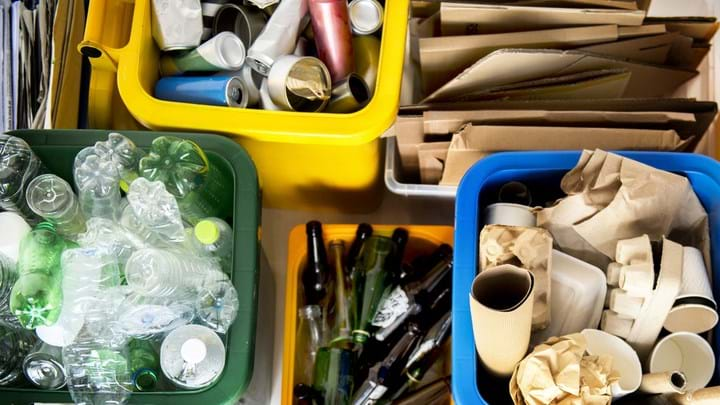Coronavirus could lead to packaging material shortage, warns Recycling Association

THE UK risks a shortage in material for vital packaging needed to protect food and medical supplies, if councils cut recycling collection as a result of the coronavirus crisis. The UK’s Recycling Association has sent a letter to the Department for Environment, Food and Rural Affairs (DEFRA), urging it to ensure that collections are maintained.
The letter, written by the Recycling Association’s Chief Executive Simon Ellin, was sent on 23 March, prior to all non-essential shops being asked to close.
Carboard boxes are used to package a variety of food products. Additionally, cardboard packaging is used to protect medicine bottles or tubes, and to deliver products that come in packaging made using plastic, metals, and glass. According to the Recycling Association, the UK’s largest UK network of independent waste and recycling operators, there is currently a strong demand for essential recycled cardboard from manufacturers, as well as for essential paper, glass, metal cans, and plastics.
Some councils have dropped collection of certain materials due to the coronavirus pandemic, says the Association. “[T]his could harm our ability to provide these materials to manufacturers,” said Ellin. For example, glass collections have been cut by some councils, particularly in Scotland. There is currently strong demand from glass bottle manufacturers for recycled glass as they are manufacturing more medicine bottles and food jars.
Furthermore, many retailers and restaurants have temporarily closed as a result of the pandemic, excluding essential retailers such as supermarkets and pharmacies. The stores which have stayed open are now experiencing unprecedented demand for food and medical supplies, according to Ellin.
As a result of the closures, the amount of high-quality retail cardboard, paper, glass, metal cans, and plastics packaging available for collection has reduced. Conversely, an increase in home deliveries from supermarkets and companies such as Amazon means that more material is likely to be generated at households.
Household material is typically of a lower quality and will impair recycling efficiency when material needs to be provided to the market, Ellin said. He added that a further drop in standards could greatly inhibit the ability to produce raw materials for quality packaging for food and medical supplies.
Ellin asked DEFRA to remind households and councils of the need to keep providing high quality recycling collections at the same frequency so that these materials can be converted into new and vital products.
Ellin commented: “I know there is great pressure on resources at the moment, but local authorities must maintain standards to ensure we receive decent quality material. They should also keep collecting material to be recycled.
“We know it is very difficult for councils at the moment, and I have utmost respect for those who are out and about everyday emptying our bins while trying to stay safe. These key workers are essential for enabling us to keep supplies flowing.”
“But we need to provide our supply chains with material.”
In the letter, Ellin further noted to DEFRA that export markets should be kept open to enable manufacturers in global supply chains to be provided with material to turn into new products and packaging.
Ellin also requested that DEFRA consider “lighter touch regulation” and business rate relief on storage, in the case that markets for recycled materials become harder to access and material needs to be stored. But he noted this point may not be reached if recycling collections continue and quality remains high.
Ellin wrote in his letter: “These are particularly challenging times for everyone in the UK, and as a strategic industry that provides collections of secondary raw materials, and recycles them into new products, we are doing everything we can to ensure supply of packaging for medical supplies, supply of toilet rolls, soft drink and milk bottles, cardboard boxes containing breakfast cereals and many other products essential to our daily life.
“We appreciate the support your government has given our industry so far, and ask that you consider the measures contained in this letter to ensure we are able to empty the bins and allow manufacturers and retailers to keep shelves well-stocked.”
According to the Association, some of its members have increased production to supply extra cardboard boxes, toilet rolls, glass medicine bottles, and other essential products to meet demand.
Recent Editions
Catch up on the latest news, views and jobs from The Chemical Engineer. Below are the four latest issues. View a wider selection of the archive from within the Magazine section of this site.




